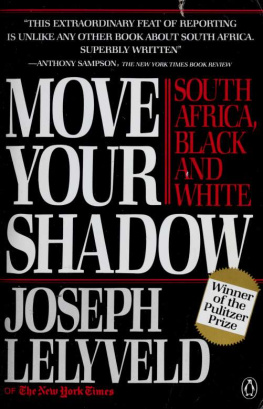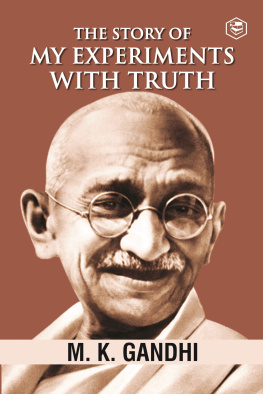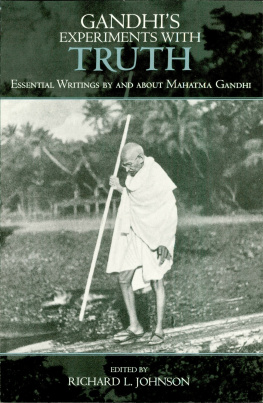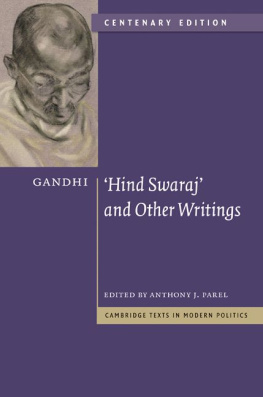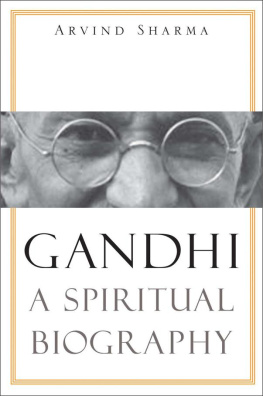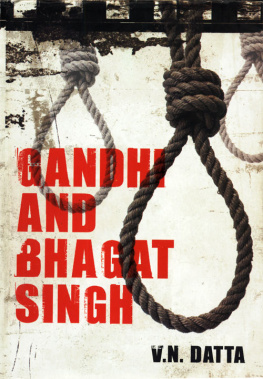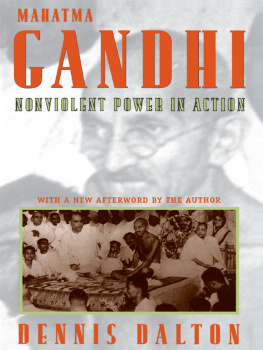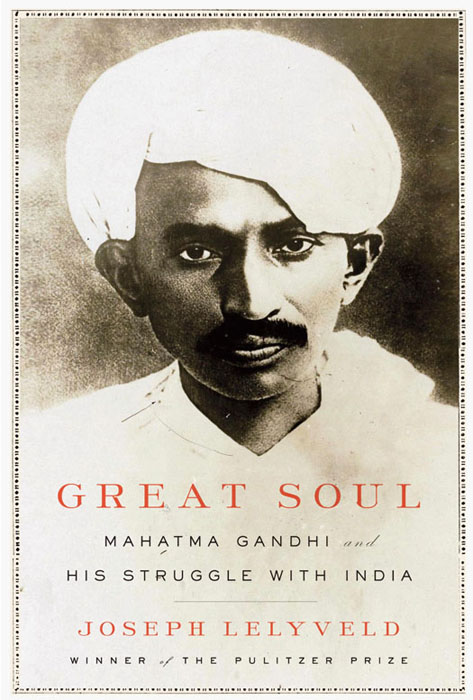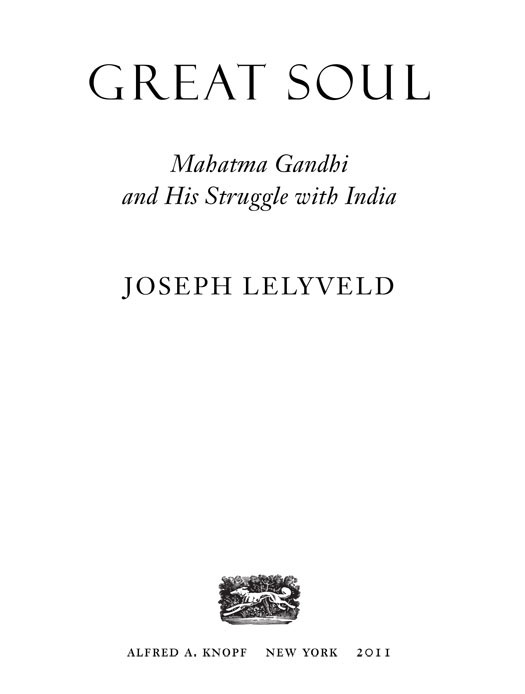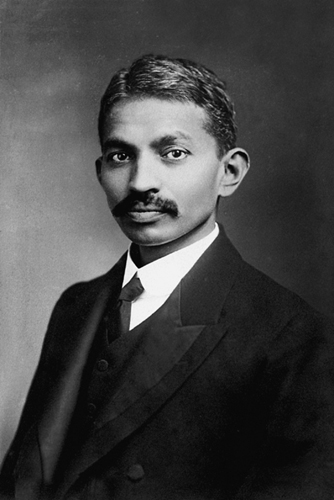
Not yet a mahatma, 1906
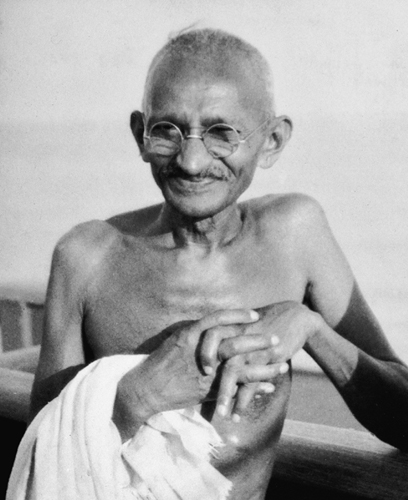
Twenty-five years later, 1931
THIS IS A BORZOI BOOK
PUBLISHED BY ALFRED A. KNOPF
Copyright 2011 by Joseph Lelyveld
All rights reserved. Published in the United States by Alfred A. Knopf, a division of Random House, Inc., New York, and in Canada by Random House of Canada Limited, Toronto.
www.aaknopf.com
Knopf, Borzoi Books, and the colophon are registered trademarks of Random House, Inc.
Grateful acknowledgment is made to the following for permission to reprint previously published material:
Alfred Publishing Co., Inc.: Lyrics from Youre the Top (from Anything Goes), words and music from Cole Porter, copyright 1934 (Renewed) by WB Music Corp. All rights reserved. Reprinted by permission of Alfred Publishing Co., Inc.
Navajivan Trust: Excerpts from works by M.K. Gandhi and Pyarelal, reprinted by permission of the Navajivan Trust.
Library of Congress Cataloging-in-Publication Data
Lelyveld, Joseph.
Great soul : Mahatma Gandhi and his struggle with India / Joseph Lelyveld.1st ed.
p. cm.
This is a Borzoi bookT.p. verso. Includes bibliographical references and index.
eISBN: 978-0-307-59536-2
1. Gandhi, Mahatma, 18691948. 2. StatesmenIndiaBiography. 3. NationalistsIndiaBiography. 4. IndiaPolitics and government19191947. 5. South AfricaPolitics and government18361909. I. Title.
DS481.G3L337 2011
954.035092dc22
2010034252
Jacket illustration:
Haynes Archive/Popperfoto/Getty Images
v3.1
FOR JANNY
I do not know whether you have seen the world as it really is. For myself I can say I perceive the world in its grim reality every moment. (1918)
I deny being a visionary. I do not accept the claim of saintliness. I am of the earth, earthy I am prone to as many weaknesses as you are. But I have seen the world. I have lived in the world with my eyes open. (1920)
I am not a quick despairer. (1922)
For men like me, you have to measure them not by the rare moments of greatness in their lives, but by the amount of dust they collect on their feet in the course of lifes journey. (1947)
MOHANDAS KARAMCHAND GANDHI , 18691948
CONTENTS
PART I
SOUTH AFRICA
PART II
INDIA
AUTHORS NOTE
T HE M AHATMA had been gone for half a century, but there were still Gandhis at the Phoenix Settlement, outside Durban on South Africas Indian Ocean coast, when I visited there the first time in 1965. A little boy, identified as a great-grandson, toddled across the room. He was living with his grandmother, widow of Manilal Gandhi, second of Gandhis four sons, whod stayed on in South Africa to edit Indian Opinion, the weekly paper his father had started, and thereby keep alive the settlement and its values. The patriarch had chosen to be father to a whole community, so he turned the farm into a kind of commune where he could gather an extended family of followers, European as well as Indian, nephews and cousins, and, finally, with no special status, his own wife and sons.
I was not a pilgrim, just a reporter looking for a story. By the time of my visit, Gandhi had been dead for nearly eighteen years, Manilal for nine, and Indian Opinion for five. There wasnt a lot to see besides the simple buildings theyd inhabited. On one of them, the brass nameplate still read M. K. Gandhi. The great work of racial separationwhat the white authorities called apartheidhad already begun. Small Indian plot holders, whod once lived and farmed among Zulus, now crowded onto the settlements one hundred acres. I wrote about the visit in a mournful vein, noting that Indians and other South Africans no longer believed that Gandhian passive resistance could accomplish anything in their land. Passive resistance doesnt stand a chance against this government, a trustee of the settlement said. Its too brutal and persevering.
If my next assignment as a foreign correspondent hadnt been India, where I lived for a few years in the late 1960s, that afternoon might not have stuck in my mind as a reminder of a subject to which Id need to return. For me the South African Gandhi would always be more than an antecedent, an extended footnote to the fully fledged Mahatma. Having looked at the green hills of Africa from his front porch, I thought, in the simplifying way reporters think, that he was the story.
The maelstroms of India could obscure but never dislodge that intuition. The more I delved into Indian politics, the more I found myself pondering the seeming disconnect between Gandhis teachings on social issues and the priorities of the next generation of leaders who reverentially invoked his name. Often, in those days, these were people whod actually encountered the Mahatma, whod come into the national struggle fired by his example. So more than a patriotic ritual was involved when they claimed to be his heirs. Yet it was hard to say what remained of him beyond his nimbus.
An occasion for asking such questions occurred with the approach of the one hundredth anniversary of his birth in 1969. Setting out to report on the remnants of Gandhis movement, I followed Vinoba Bhave, his last full-time apostle, as he trudged through the most impoverished parts of Bihar, then as now among the poorest of Indian states, trying to persuade landlords to cede some of their holdings to the landless. Vinoba collected deeds to thousands of acres of barren, untilled, and untillable land. The Mahatmas aging protg seemed stoic, if not tragic, as he saw his doomed mission through to its largely inconsequential end.
He became his admirers. Thats Auden on Yeats. Three decades ago V. S. Naipaul used the line to characterize the decline of Gandhis influence in his last years, when he was most revered. The combination of piety and disregardhardly unique to Indialasted as a cultural reflex, surviving the explosion of Indias first nuclear bomb.
Over time and at a distance, my experiences of South Africa and India ran together in my mind. Gandhi was an obvious link. I found myself thinking again about the Phoenix Settlement, to which I returned twice, the second time after it had been burned down in factional black-on-black violence accompanying the death throes of white supremacy, only to be restored with the blessing of a democratically chosen government eager to canonize Gandhi as a founding father of the new South Africa. I then found myself thinking about Gandhi himself, wondering how South Africa helped to form the man he became, how the man he became in South Africa struggled with the reality of India, how his initiation as a political leader on one side of the Indian Ocean foreshadowed his larger disappointments and occasional sense of failure on the other: whether, that is, there were clues to the end of his journey as leader in its beginning.
Im hardly the first to raise such questions and wont be the last. But it seemed to me there was still a story to be uncovered and told, themes that could be traced from the beginning of Gandhis political life in one country to its flourishing in another, with all the ambiguity of his legacy in each place. The temptation to retrace my own steps while retracing Gandhis finally proved irresistible.


